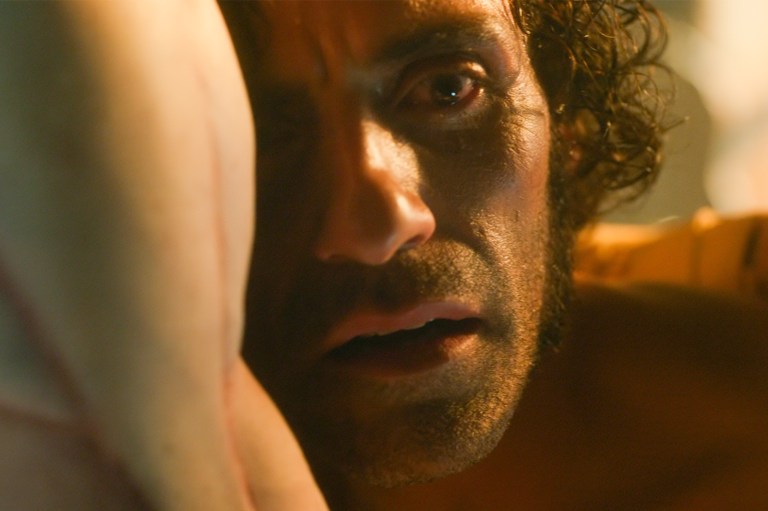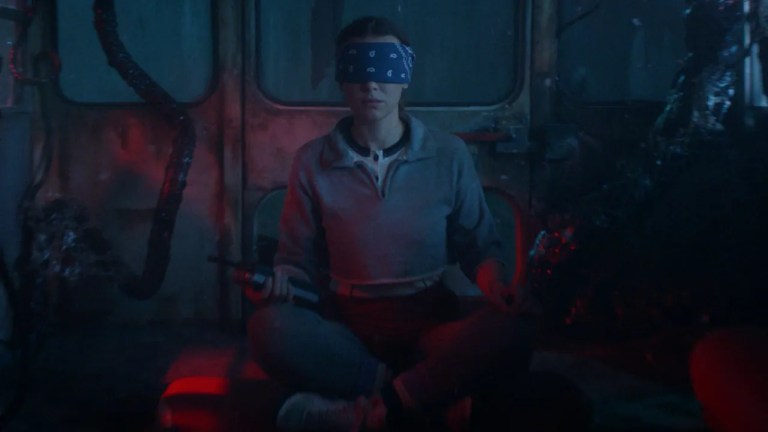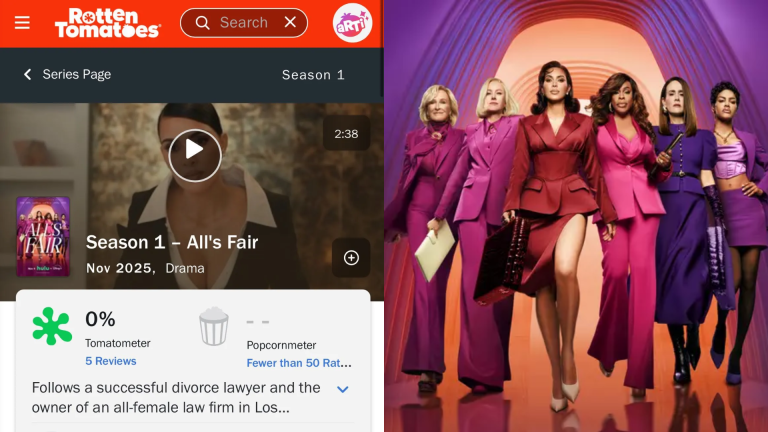
15 Years Ago, ‘District 9’ Created The Best Political Sci-Fi Film Of All Time
Neill Blomkamp's District 9 isn't only an absorbing sci-fi spectacle, but also one fueled by political commentary about South Africa's history.
Neill Blomkamp’s District 9 isn’t only an absorbing sci-fi spectacle, but also one fueled by political commentary about South Africa’s history.
In August 2009, Neill Blomkamp announced his arrival in Hollywood with the $30 million sci-fi film, District 9. Set in an alternative history of South Africa, it tells the tale of how the South African government discovered stranded aliens then put them in a segregated camp in the early 1980s. Two decades later, a decision is taken to move the extraterrestrials to another district; however, one of the aliens, Christopher Johnson, plans to escape and leave Earth with his son.
For an ordinary viewer, the film flips the script on the typical Hollywood concept that the extraterrestrials are the bad ones, presenting humans as the real enemies of the story. However, due to the context of District 9 and how it’s set in South Africa, it often acts as a loose metaphor for the country’s fractured history and association with the horrors of apartheid. Through this, it becomes the most powerful – if not the best – political sci-fi film ever created.
The illusion of choice in District 9
In District 9, Multinational United (MNU) is appointed by the government to relocate the aliens away from the city of Johannesburg. As Wikus van de Merwe (Sharlto Copley) hands out the eviction notices, the explanation given is how it’ll be better for everyone to move – with no real tangible examples about why it makes sense – and how they won’t even be charged (how noble!). In reality, what’s taking place is the growing conflict and unrest between South Africans and the aliens, so the solution to the problem is to move the latter further away. Out of sight, out of mind.
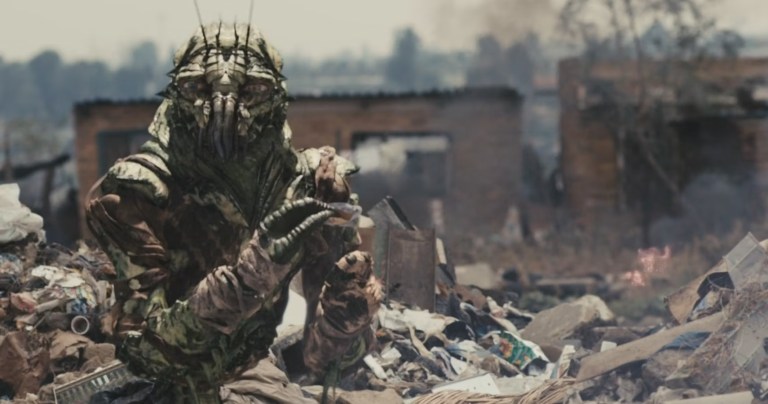
However, the aliens aren’t presented with a choice here. They are told they will be moving with threats made to their children and instances of violence from the MNU. They are seen as objects here – not as living, breathing creatures who can act out of their own freewill and volition. More importantly, this also tries to cover up the government’s biggest failure. Rather than integrate the aliens into the greater society in the 1980s, the decision was taken to isolate and put them in their own settlement with limited resources and opportunity. Anyone with half a brain could see the socio-economic issues that this would cause down the line.
Those familiar with South African history will instantly draw parallels between this and the National Party’s conduct during the apartheid years, as there were always excuses made for why people of color shouldn’t mix with whites. From a different education system to separate benches, bathrooms, and residential areas, the entire experience only served to dehumanize and demonize others. At the same time, the National Party also pretended like there were choices on the table for minorities, when really there were none.
Wikus van de Merwe learns about ostracization and becoming the enemy
When introduced, Wikus van de Merwe toes the company line. He believes in the MNU’s propaganda and the need for aliens to be separated from society. This largely happens because Wikus has been indoctrinated by the government’s message and remains part of the privileged part of society. For him, the “Prawns” are seen as nothing more than wild animals and shouldn’t be a part of civil society.
However, when he begins to transform into an alien himself, he discovers how truly “benevolent” the MNU and government really are. Instead of aiding him, they turn their backs on Wikus, even fabricating stories about his condition to further their own agenda. Systematically, they destroy Wikus’ life and there’s no going back for him. Now, Wikus needs to rely on the kindness and compassion of the very aliens he discriminated against while being a willing executioner for the MNU.
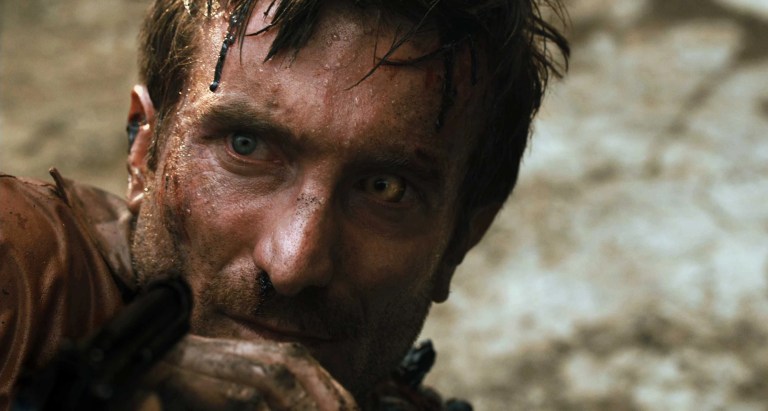
Wikus acts as an allegory for the dissenters during the apartheid state. There were privileged individuals who came to the realization that what was happening around them wasn’t right. They spoke out against the atrocities and human rights violations taking place in South Africa. Instead of being afforded a platform to express themselves, they were censored, hunted down, silenced, or isolated from society, as they became enemies of the state. Their lives were destroyed – or ended – in an effort to discourage others from daring to speak out.
District 10 might be impossible because of the scary reality
Even three decades after the end of apartheid and the start of the “rainbow nation” in 1994, there’s still a huge divide between the haves and have nots in South Africa, as the remnants of the past haunt and linger. Within a five mile radius, one can be situated in one of the richest parts of the country, Sandton, and also a stone’s throw away from a township in Alexandria. The issues about relocation of informal settlers and land ownership continue to be hotly debated in parliament as some push for the government to take control of land for reform projects while others argue for the rights of private ownership. At the same time, there’s the genuine concern that money allocated to reform programs disappears through the sticky fingers of corruption.
Stuck in the middle of all this are people who are trying to push on and make a life for themselves in these townships, which are often devoid of sanitation, running water, and electricity. These aren’t the only challenges as their daily battles for survival also includes fending off violence and high levels of crime, as gangs target and exploit the vulnerable. Much like District 9 proves, moving people from one district to another doesn’t change the situation – it only pushes the problem out of sight. Until everyone is treated equally and receives a fair opportunity for a better life, the cycle of discrimination and segregation repeats itself. Perhaps this is the reason the sequel, District 10, from Neill Blomkamp hasn’t materialized, because it’s almost too tragic to tell the same story over and over again. What’s meant to be dystopia is still the reality of many – not just in South Africa but around the world.


